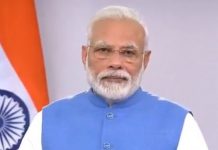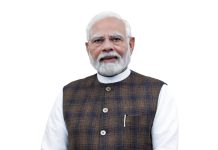
Illusionist
Edited Excerpts from an interview
What triggered your interest in magic and which is the first trick you attempted growing up?
The earliest memory I have of magic is based on a deck of cards. Once, my grandparents had some friends over for a game of rummy. That day I learnt to count from one to 13 on a deck of cards. I held up a card and asked, “Dada, what am I holding?”, to which he promptly said, “Six of clubs!” Coincidentally, it was true. After that we tried the trick a billion times, but it never worked again. However, his expression and mine, the only time he got it right, is something I cannot forget. Now, in all my shows, I include this one trick called ‘Grandfather’s Trick’ where I hold up a card and ask someone to identify it. And the card they guess is always exactly the one I hold. Barring that first card trick, I was never really fascinated by magic, strange as it might sound. I’ve always known that there is a trick behind all magic. And I wasn’t influenced by it till the age of 11 when I met this famous magician, Ishamuddin (Khan), who taught me coin tricks. The concept of magic changed for me after that; I cultivated interest and eventually learned more of it. I performed for the first time at 16 and have done over 100 shows since then.
What got you hooked to the concept of ‘illusion’ and how do you view it as any different from ‘magic’?
Somehow I never acknowledged the existence of ‘magic’, and neither am I very fond of being called a magician. Magicians do not fascinate me. I like to think of myself as more of a psychological illusionist. I am a performer who creates illusions for the sole purpose of entertainment. When you say the word ‘magic’, people all of a sudden become more aware and want to catch the trick behind it. Which is why I tell people outright that I am not a magician. I am a performer who uses hypnosis, lie detection methodologies, neurolinguistic programming and showmanship to entertain the audiences. The very thrill of performing to a live audience and their willingness to be fooled, even if for a moment, is what drives me.
So how good or bad do you think the scope is for illusionists in India?
The scene in Delhi is growing considerably well. I performed at Raasta in Hauz Khas Village, New Delhi, in April last year. And after two weeks, almost every big place in the area had a magician performing. My friend Shankar, who is a coin magician, performs in 12 different places. There are various genres in magic — coins, cards, mind reading, hypnosis. People start by learning all of it and then proceed with whatever piques their curiosity. I do an assortment of cards, mind reading and hypnosis tricks. A professional interest in this sphere is picking up slowly but steadily. For instance, stand-up comedy has now become a major trend, but soon people will get bored of that (unless you find innovative means), and soon after, magic will rise in popularity.
What does it take to put up an engaging performance as a psychological illusionist?
My audience is my only prop. It’s my job to make the audience act according to a storyline that I have in my mind. So, it’s like a one-act play without any rehearsal. The 10 seconds between a volunteer leaving his seat and climbing up the stage is very crucial. It might sound judgemental but I have to look at a person and know what he or she might think like. I have to influence the manner in which the subject thinks in order to perform an accurate trick. But there are other tricks as well that I perform regardless of who comes on the stage, because I’ve done them so many times before that I feel confident they won’t go wrong. However effortless the trick may seem, and irrespective of the number of times I’ve performed it, there still is a trick.
Do you ever develop cold feet when you’re on the stage in front of an eager audience?
It happens once in two months. Like I said, people always have this fascination of knowing how it’s all done. So there will always be some people who will come on stage and try to push you down. They try to catch you and say, “Okay, that’s how it’s done”, and suddenly the whole audience gets the courage to go against the performer. But for these situations I have a storyline to make the audience follow my intended line of thought. At that moment, I send the subject back to the audience. Then I follow it up with a continuation trick in order to prove that if the previous trick had indeed gone wrong, then this would not have been possible. There are plenty of risks involved in this, but you need to have a high degree of confidence to make the 1,000 scrutinising pairs of eyes believe you.
How exactly do you incorporate neurolinguistic programming and hypnosis techniques in your tricks?
Neurolinguistic programming enables you to comprehend and influence the language of the brain through speech, gesture, signs, body language and other such measures. If I ask people to think of two relatively similar shapes, I do a certain set of actions to plant the shapes in their head. For instance, I lean on my right foot and make a couple of hand gestures, which is enough to make them think of a triangle and a circle. Subconsciously your audience is always waiting to be led on and neurolinguistic programming lets you do exactly the same. It is very broad in practice. You can use it to limit the choices in your subject’s mind, so he or she only thinks along the lines that you want. In fact, people even get startled when you state the obvious. So, it’s an understanding of their psychology and body language. As for hypnosis, you have to identify what triggers your audience. Someone who is nervous in front of an audience makes for a good subject because they automatically respond to your suggestions. So, the trick is to craft the idea and plant it in a timely manner in the mind of your audience so that they respond on the lines of the story you have planted.
What disappoints you as a performer?
I want to perform in India more than anywhere else so that people here become open to the idea of such performances, and they need to respect the fact that someone has put up a show for them. And for any live performer the worst moment is when anyone gets up and leaves the show. You are free to criticise my performance, but I would expect you to sit through it. Last year, during one of my performances where I got a standing ovation, one person walked out and it still bothers me. Of course, I push myself to keep performing better, but no matter how brilliant you are, with a live audience someone always walks out!
Which personalities would you say have influenced you and your craft the most?
My biggest idol is Derren Brown, the British psychological illusionist, and I don’t think there is a better entertainer than him in the world. He has pushed the boundaries for ‘magic’ more than anyone else. Performing for him has to be my biggest moment yet. I respect Steve Jobs tremendously for his incredible showmanship. The man had the ability to sway a billion people to his tune through his keynotes. Shah Rukh Khan has also influenced me a lot, as has Stephen Fry, both of whom possess incredible wit and a great relationship with the audience.
aishwarya@tehelka.com













